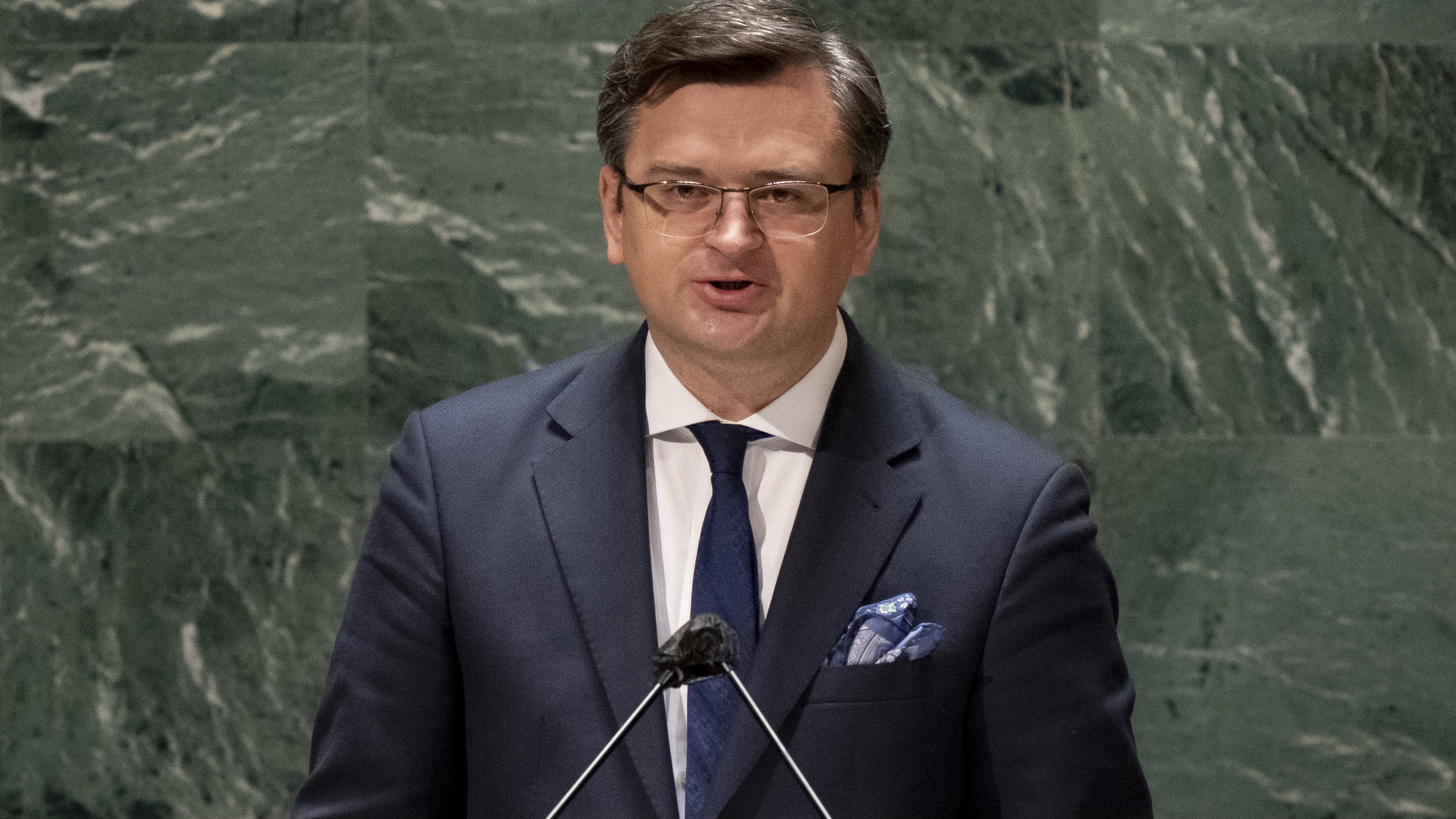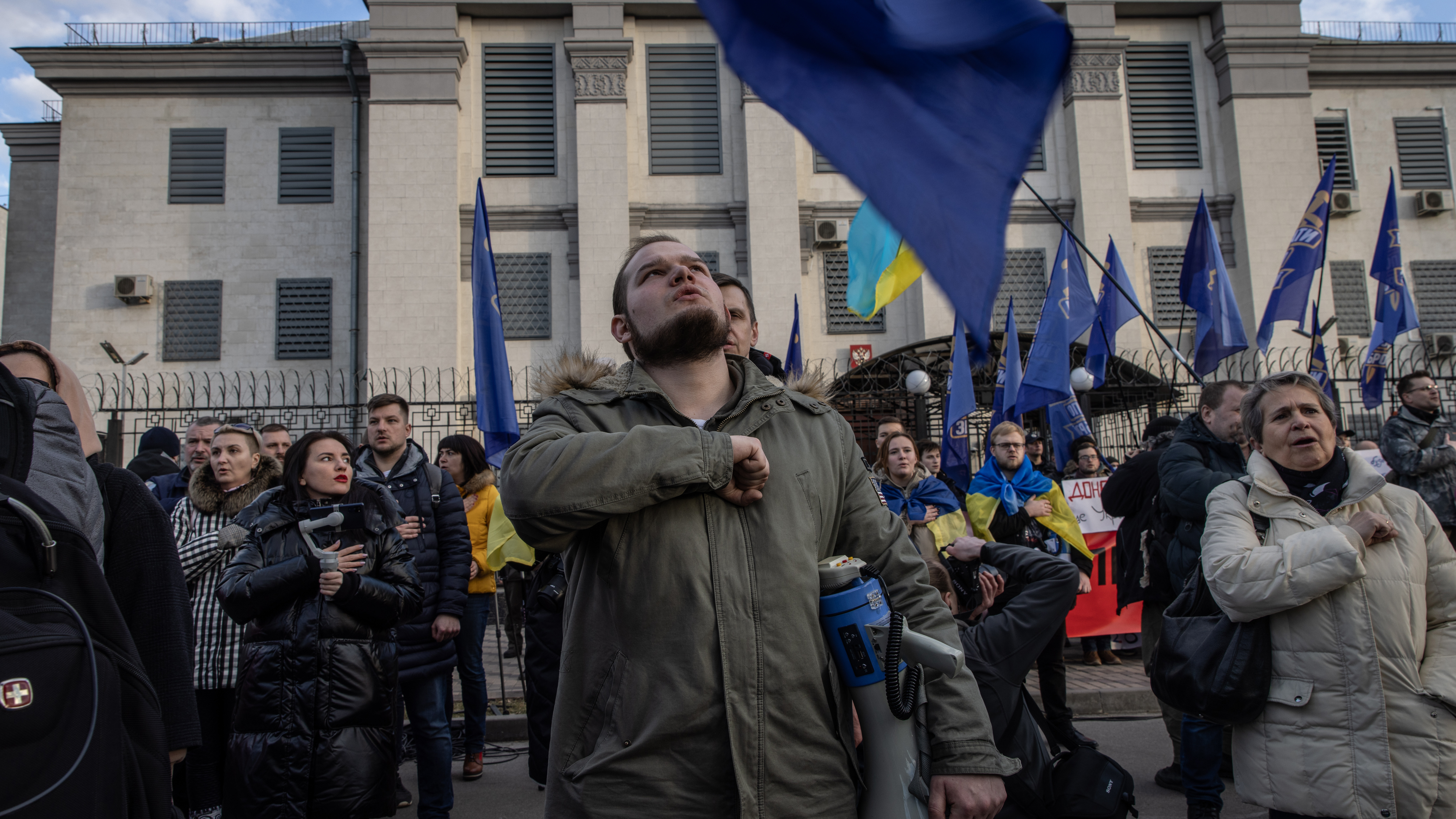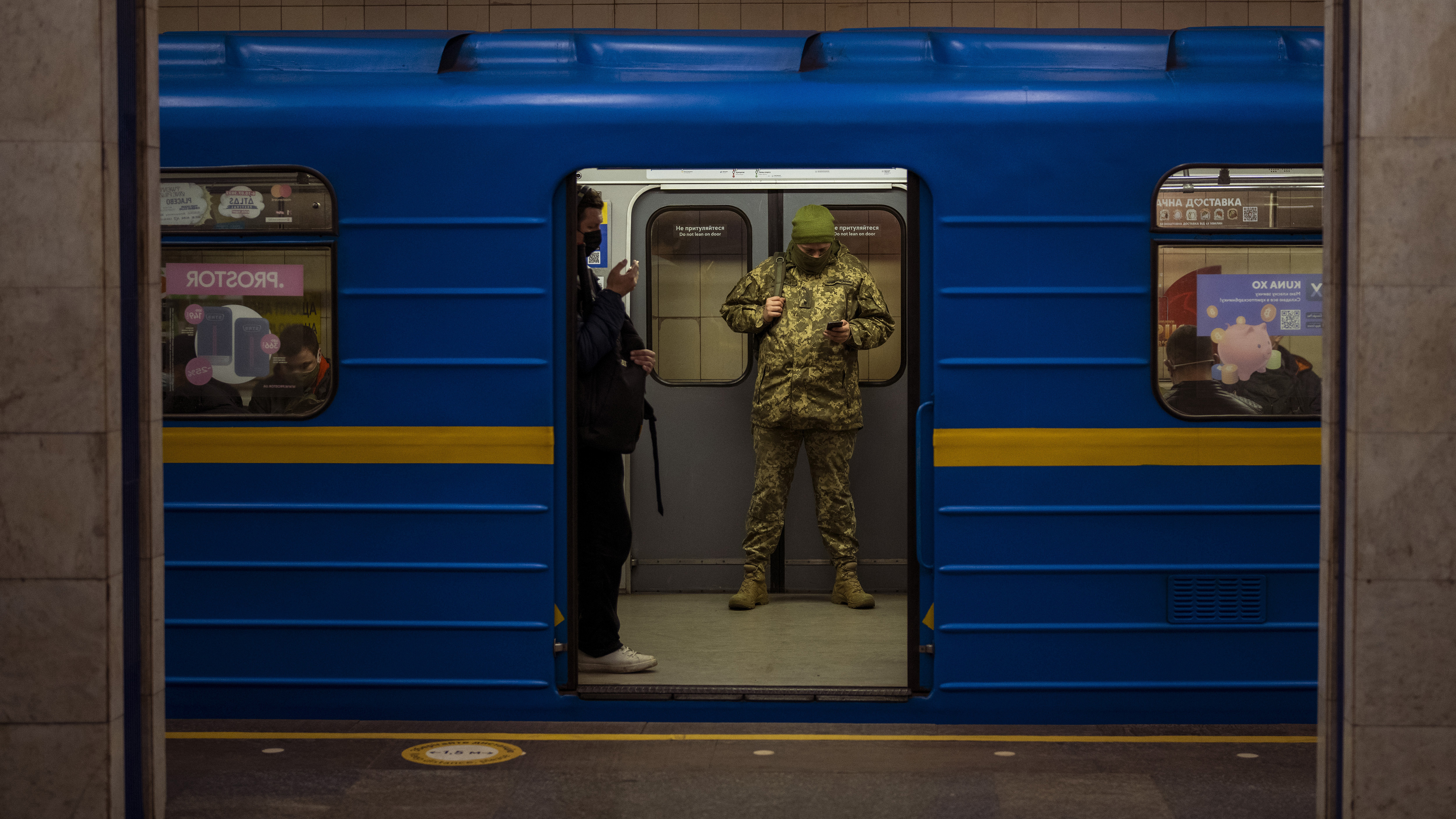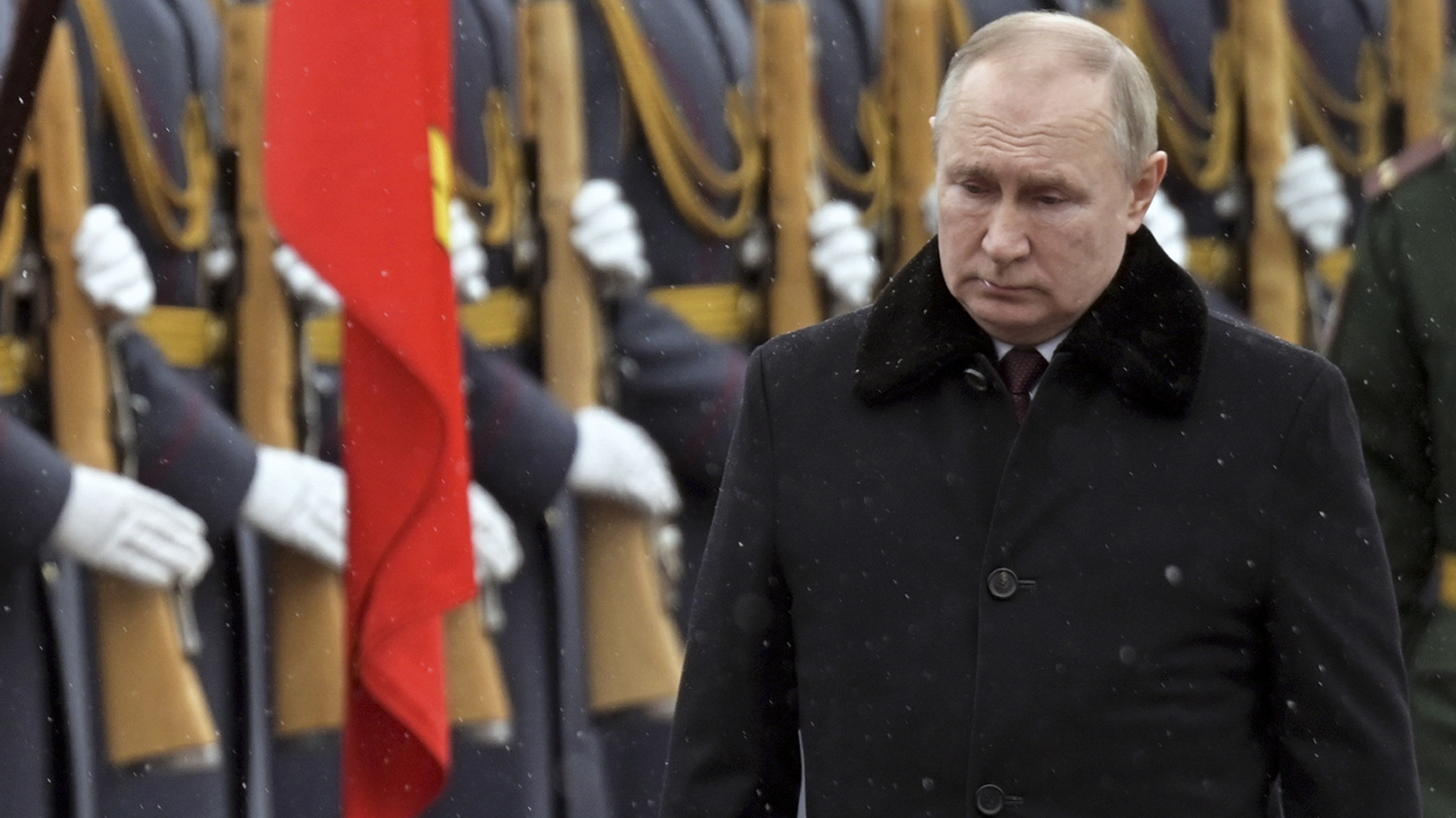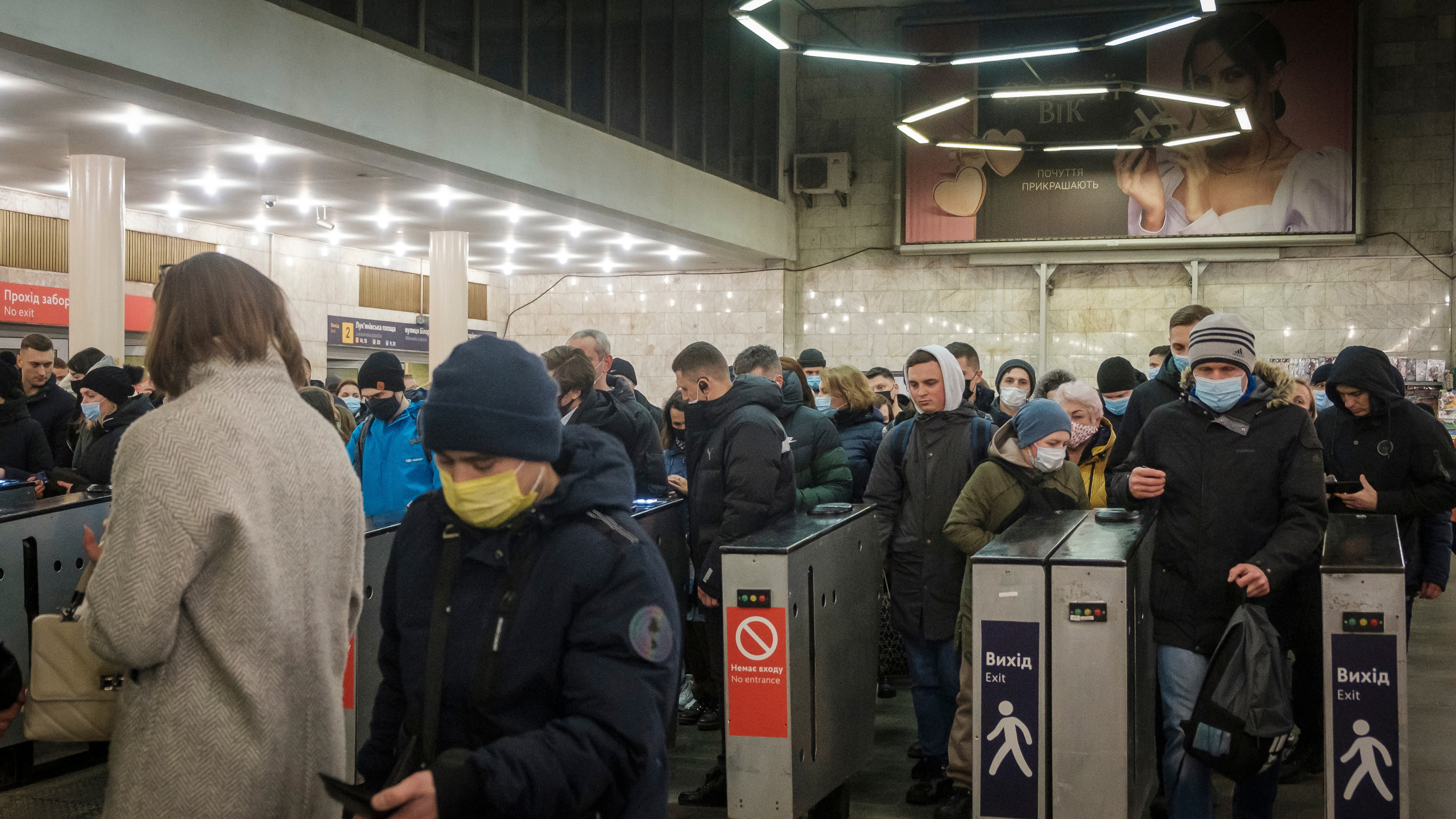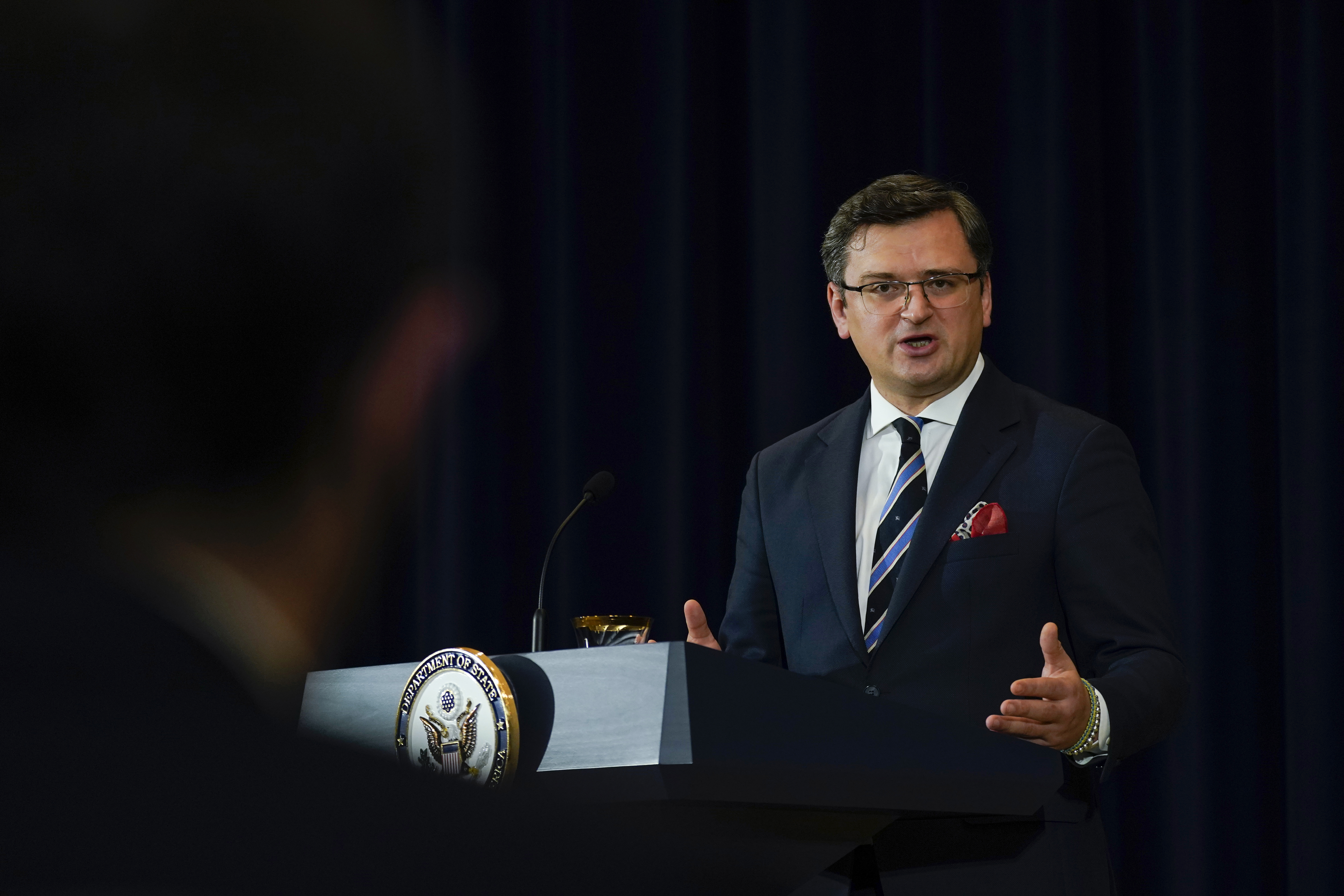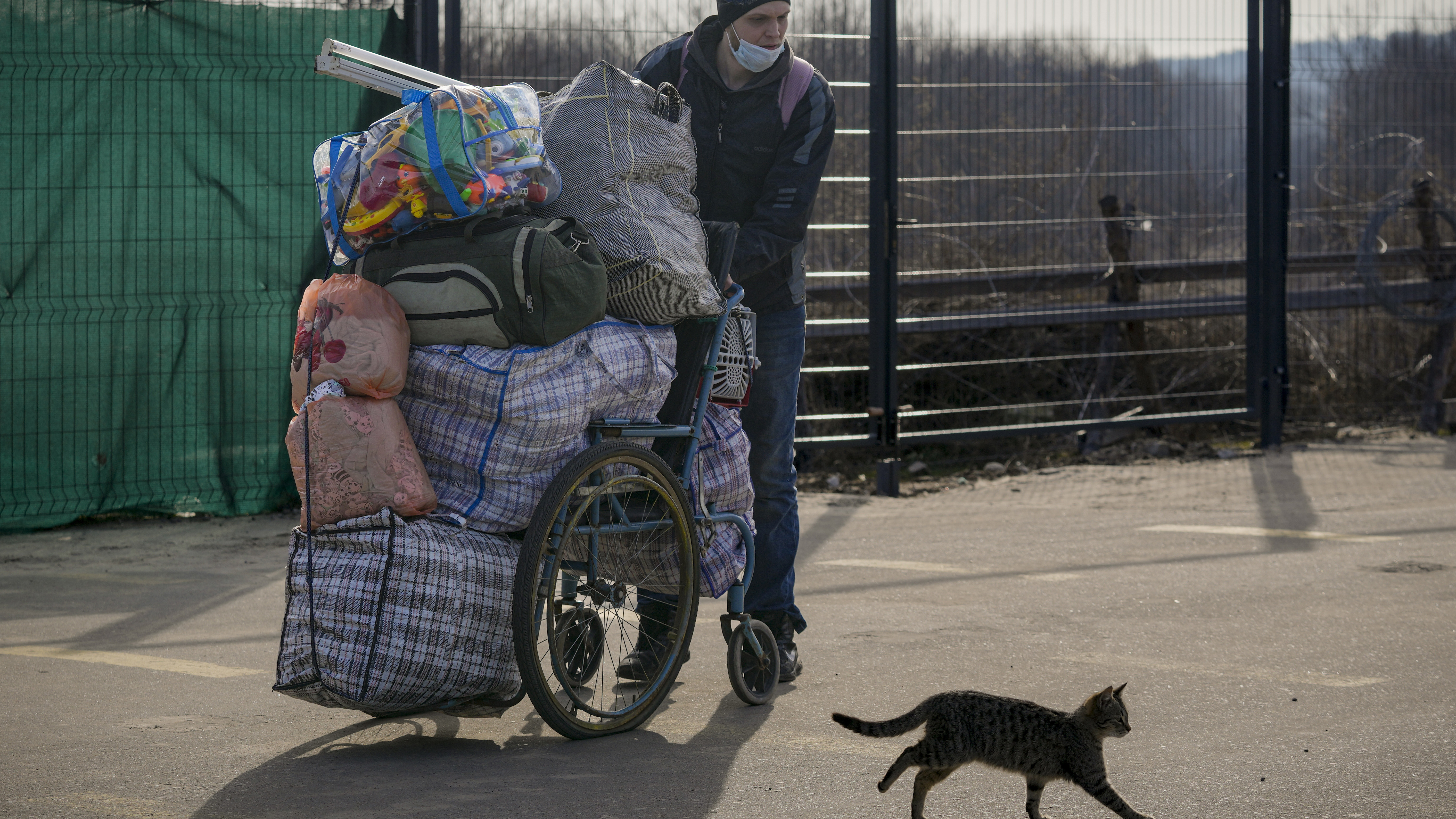Russia began evacuating its embassy in Kyiv and Ukraine urged its citizens to leave Russia on Wednesday, as the region braced for further confrontation after President Vladimir Putin received authorisation to use military force outside his country and the West responded with sanctions.
Hopes for a diplomatic way out of a new, potentially devastating war in Europe appeared all but sunk as the US and key European allies accused Moscow on Tuesday of crossing a red line in rolling over Ukraine's border into separatist regions — with some calling it an invasion.
The Ukrainian Foreign Minister warned global leaders at the UN in New York that what was going on would affect all of them.
READ MORE: 'No sanctions will be enough until Russian boots withdraw', Ukrainian Foreign Minister
"What is happening right now in Eastern Ukraine, where Russian tanks are rolling in, along the Ukrainian borders, where Russian troops are amassed in enormous quantities, must be a concern for everyone," Ukrainian Foreign Minister, Dmytro Kuleba said.
"No one will be able to sit out this crisis," he said adding it was the worst security situation since WW2.
"If President Putin decides that he can move forward, with his aggression against Ukraine, your governments, and your people will face painful consequences, together with our government, and our people."
Antonio Guterres, United Nations Secretary General, said the "world is facing a moment of peril."
"We meet in the face of the most serious global peace and security crisis in recent years, and certainly in my time as secretary general," he said.
"The latest developments regarding Ukraine are a cause of great concern, and they include reports of increased ceasefire violations across the contact line and the real risk of further escalation on the ground."
Diplomats out
Russia began pulling personnel from its diplomatic posts in Ukraine, state news agency Tass reported, a day after the Foreign Ministry announced a plan to evacuate, citing threats.
By Wednesday afternoon, the Russian flag was no longer flying over the embassy in Kyiv, according to an Associated Press photographer.
Police surrounded the building.
After weeks of trying to project calm, Ukrainian authorities signalled increasing concern on Wednesday.
The Foreign Ministry advised against travel to Russia and recommended anyone there leave immediately, saying Moscow's "aggression" could lead to a significant reduction in consular services.
State of emergency called
The head of Ukraine's National Security and Defence Council called for a nationwide state of emergency — subject to parliamentary approval.
READ MORE: How a Russian invasion could hit global economy and your wallet
Oleksiy Danilov said it will be up to regional authorities to determine which measures to apply, but they could include additional protection for public facilities, restrictions on traffic, and additional transport and document checks.
Reservists have also been called up by armed forces.
It was just the latest in a series of signs of escalating tensions.
Kyiv recalled its ambassador to Russia and considered breaking all diplomatic ties with Moscow; Russia said it would evacuate personnel from its embassy in Ukraine; dozens of nations further squeezed Russian oligarchs and banks out of international markets; Germany halted a lucrative pipeline deal; the US repositioned additional troops to NATO's eastern flank bordering Russia; and the top US diplomat cancelled a meeting with his Russian counterpart.
READ MORE: UK to send more military aid to Ukraine
World reacts
Already, the threat of war has shredded Ukraine's economy and raised the spectre of massive casualties, energy shortages across Europe and global economic chaos.
Even as the conflict took a new, dangerous turn, leaders warned it could still get worse.
Russian President Vladimir Putin has yet to unleash the force of the 150,000 troops massed on three sides of Ukraine, while US President Joe Biden held back on even tougher sanctions that could cause economic turmoil for Russia but said they would go ahead if there is further aggression.
READ MORE: Australia will impose immediate sanctions on Russia
Sanctions are key because the West has ruled out taking on Russia militarily.
Earlier, Ukrainian Foreign Minister Dmytro Kuleba urged Western leaders not to wait.
"We call on partners to impose more sanctions on Russia now," he wrote on Twitter on Wednesday.
"Now the pressure needs to step up to stop Putin. Hit his economy and cronies. Hit more. Hit hard. Hit now."
https://twitter.com/DmytroKuleba/status/1496399948996354051?ref_src=twsrc%5Etfw
Responding defiantly to the steps already taken, Russian ambassador in the US Anatoly Antonov retorted that "sanctions cannot solve a thing" in a statement on Facebook.
"It is hard to imagine that there is a person in Washington who expects Russia to revise its foreign policy under a threat of restrictions."
In Ukraine's east, where an eight-year conflict between Russia-backed rebels and Ukrainian forces has killed nearly 14,000 people, violence also spiked again.
Soldier killed in shelling
One Ukrainian soldier was killed and six more sustained injuries after shelling by the rebels, Ukrainian military said.
READ MORE: The three Russian oligarchs hit by UK sanctions
Separatist officials reported several explosions on their territory overnight and three civilian deaths.
Since last Friday, when separatist leaders in the Donetsk and Luhansk regions announced mass evacuations into Russia, more than 96,000 residents of the separatist areas have crossed the Russian border.
After weeks of rising tensions, Putin took a series of steps this week that dramatically raised the stakes.
First, he recognised the independence of those separatist regions. Then, he said that recognition extends even to the large parts of the territories now held by Ukrainian forces, including the major Azov Sea port of Mariupol.
Formal request
Finally, he asked for and was granted permission to use military force outside the country — effectively formalising a Russian military deployment to the rebel regions.
Still, Mr Putin suggested there was a way out of the crisis, laying out three conditions: He called on Kyiv to recognise Russia's sovereignty over Crimea, the Black Sea peninsula that Moscow annexed from Ukraine in 2014, to renounce its bid to join NATO and partially demilitarise.
READ MORE: All the ways a Russian invasion could hit global economy and your wallet
But it was unclear if there was actually any room for diplomacy since the first two demands had been previously rejected by Ukraine and the West as non-starters.
The Russian leader remained vague when asked whether he has sent any Russian troops into Ukraine and how far they could go.
"I haven't said that the troops will go there right now," Mr Putin responded, adding that "it's impossible to forecast a specific pattern of action — it will depend on a concrete situation as it takes shape on the ground."
Source: 9News

